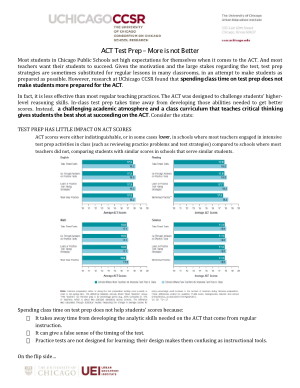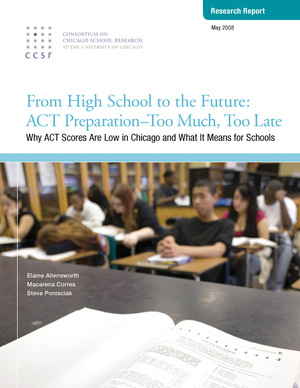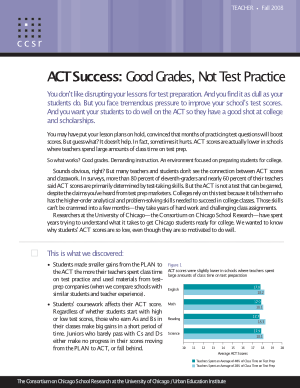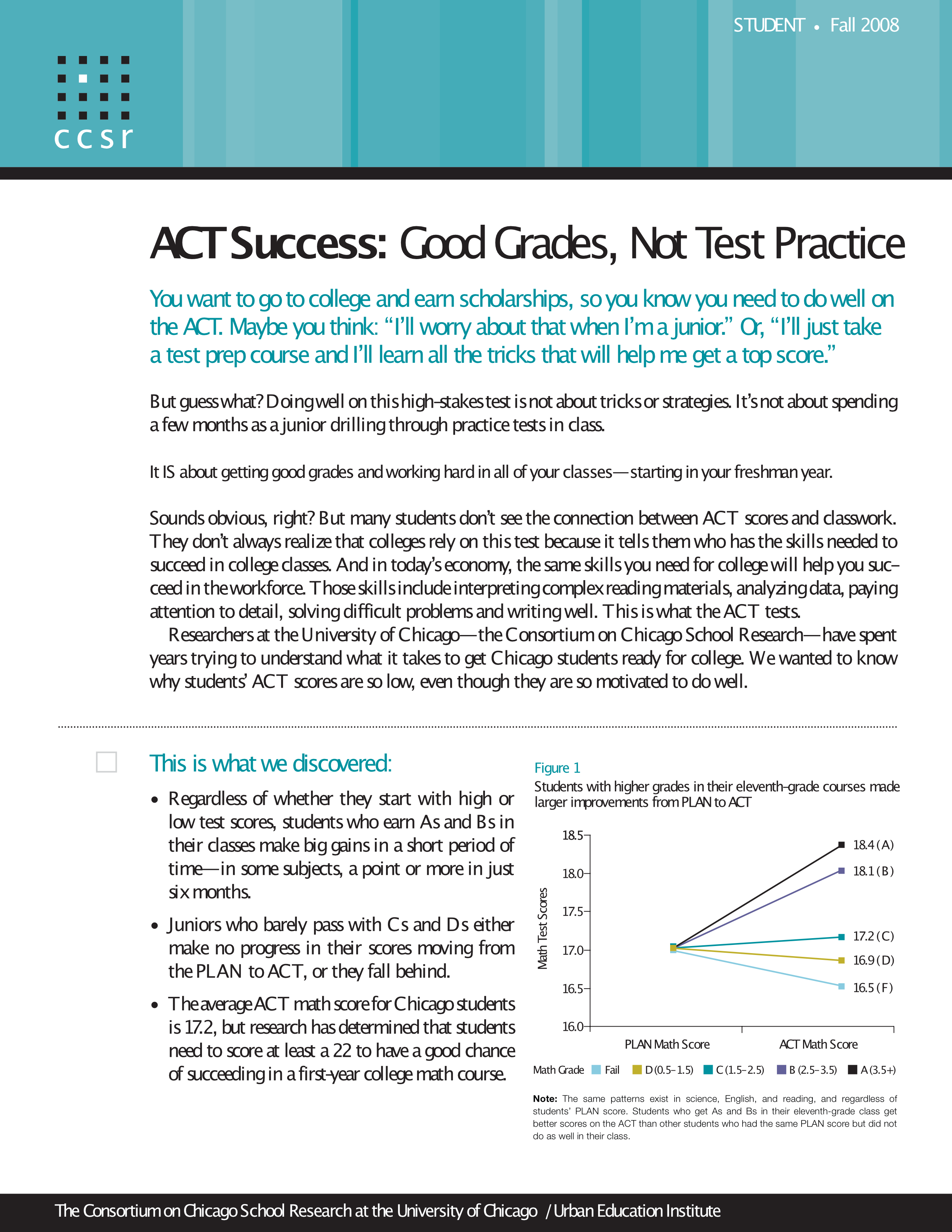1. Why are ACT scores so low?
2. Are students’ test preparation efforts effective for raising their scores?
3. What matters for improvements on EPAS tests?
4. Why doesn’t this accountability test of high-level skills with real-world consequences improve instructional practice?
This study relies on qualitative and quantitative data for a cohort of students who were Chicago Public Schools (CPS) juniors in 2005. This includes test scores from eighth to eleventh grade, student transcripts, Consortium surveys, and multiple interviews of students and teachers at three Chicago high schools. The report also incorporated 2007 data on CPS juniors and teacher surveys.
The key findings include:
- Low ACT scores reflect poor alignment of standards from K-8 to high school and from high school to college.
- Test strategies and item practice are not effective mechanisms for improving students’ ACT scores.
- ACT performance is directly related to students’ work in their courses.
- Incorporating the ACT into high school accountability is not an effective strategy for high school reform by itself, without accompanying strategies to work on instructional practice.
This research is the third in a series of reports that has tracked the experiences of successive cohorts of CPS graduates and examined the relationship among high school preparation, support, college choice, and post-secondary outcomes. The goal of this research is to help CPS, other urban districts and national policy makers understand what it takes to improve outcomes for urban and other at-risk students who now overwhelmingly aspire to college.




